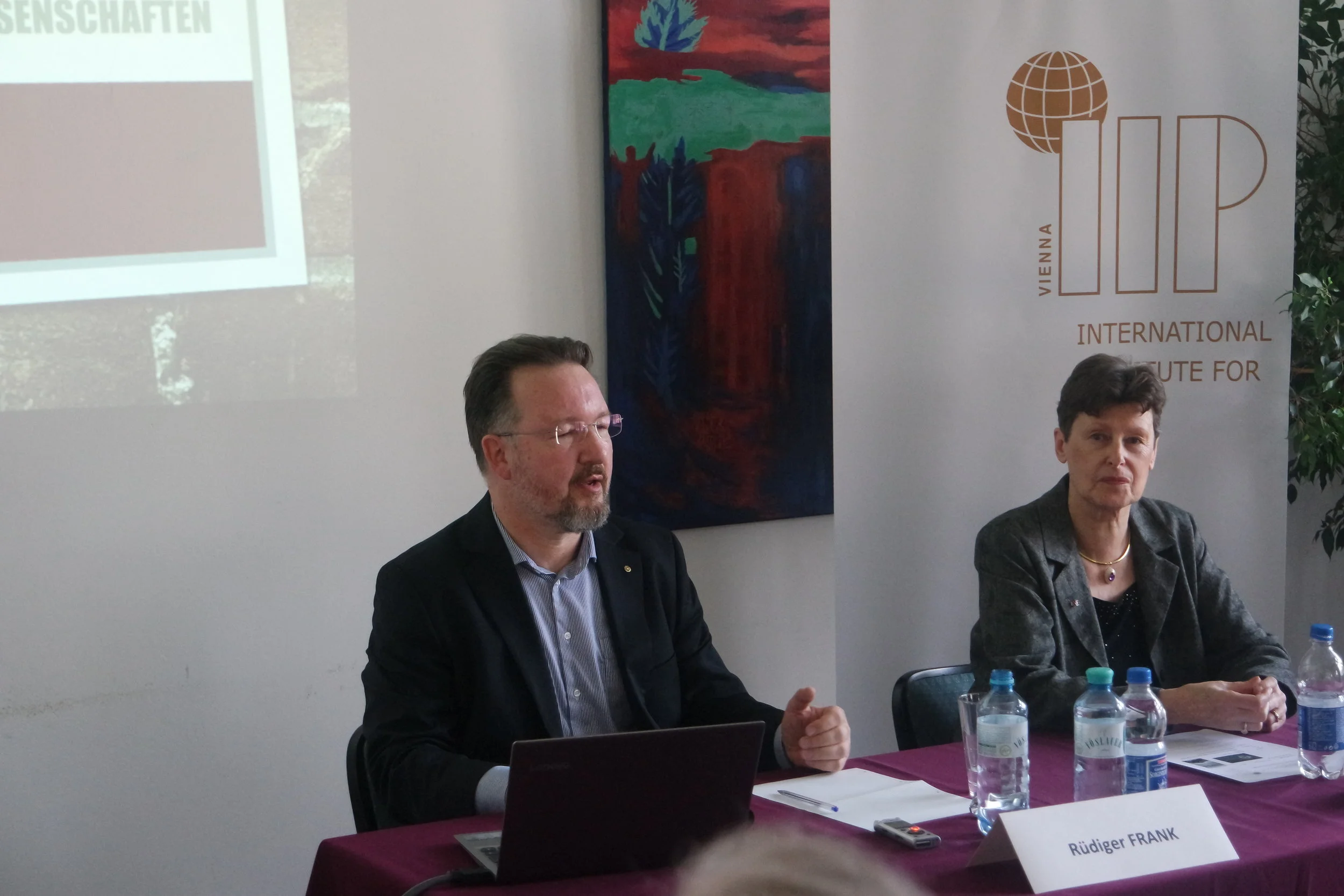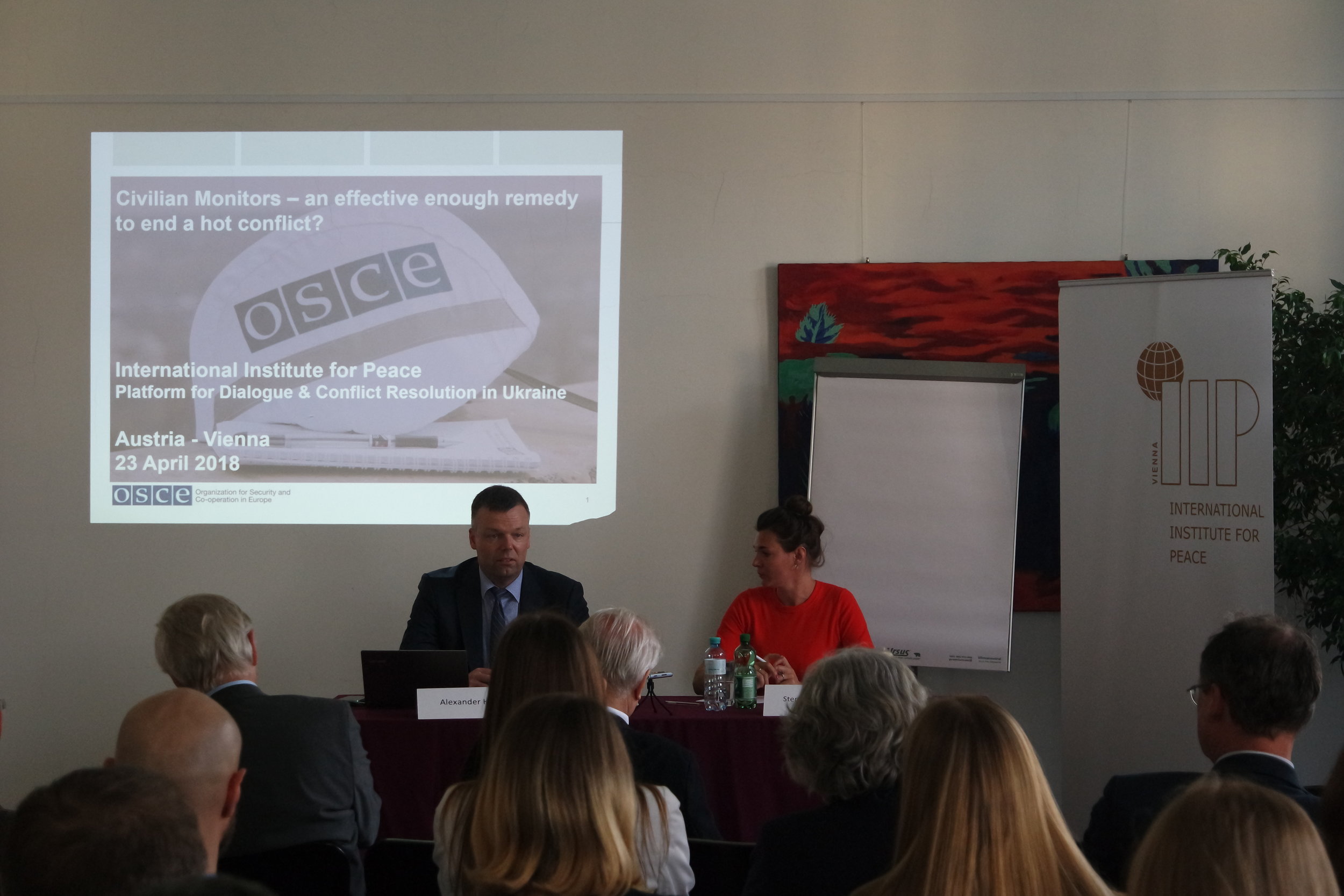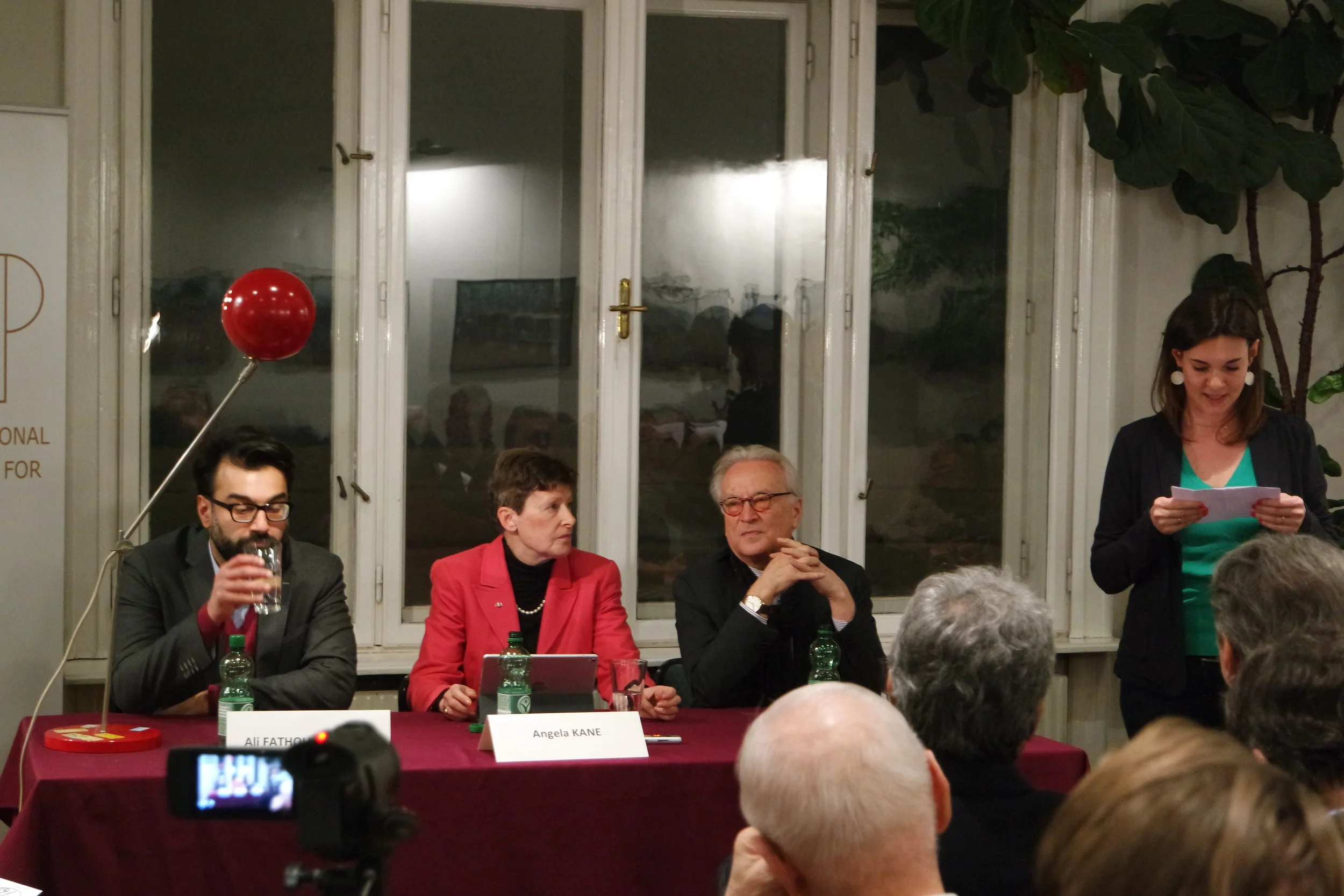Bei der gemeinsamen Podiumsdiskussion “Heute im Konflikt und morgen Partner Europas?” diskutierten wir gemeinsam mit Shabka über das breite Thema “Zivilgesellschaft im Konflikt” in Tunesien, Syrien und in der kurdischen Region im Nordirak. Dem Ansatz polit- und demokratietheoretischer Forschung folgend, investiert die EU in die lokale Zivilgesellschaft, zur Stabilisierung konfliktzerworfener Gesellschaften und zur Förderung der Demokratie in der MENA Region. Aber was können zivilgesellschaftliche Akteure wirklich bewirken? Welche Gruppen von Akteuren gilt es zu differenzieren? Und wie soll die EU-Strategie dazu in Zukunft aussehen?
North Korea - In Talk with Rüdiger Frank
As North Korea is a highly interesting and actual topic the International Institute for Peace (IIP) was very happy to host this event all around the new book of Rüdiger Frank – “Unterwegs in Nordkorea – Eine Gratwanderung”. Rüdiger Frank is North Korea expert and works as lecturer at the University of Vienna at the department of Eastern Asian studies.
Civilian Monitors – an effective enough remedy to end a hot conflict?
On 23 April 2018, The Platform for Dialogue and Conflict Resolution in Ukraine had the opportunity to host an exciting event with Ambassador Alexander Hug, Principal Deputy Chief Monitor of the OSCE Special Monitoring Mission to Ukraine. Providing insights in the work and daily life of the Special Monitoring Mission, the discussion revolved around the question whether OSCE civilian monitors were an effective enough remedy to end a hot conflict in Ukraine.
Israel and Palestine - a binational state or two states for two nations
The new Iran? Between Confrontation and Change
As Iran had to face several new protests in December 2017 the International Institute for Peace organized in cooperation with the Renner Institute a public panel discussion 22nd February to debate about the future situation of Iran, its following internal and foreign policies and opportunities for a solution of the current conflict.
Ukraine: What Prize for Freedom?
On the 16th of March the International Institute for Peace organized a panel discussion on the topic “Ukraine: what prize for freedom?”. The IIP was very happy to welcome the Ukrainian ambassador to Austria Olexandr Scherba and Hannes Swoboda, former member of the European parliament and president of the IIP.
Russia Before the Presidential Elections
Even tough the elections didn’t happen yet, it is clear who is going to be the future president. Putin won’t have much difficulties becoming the head of state, for the simple reason that there are no serious competitors to defeat. Therefore, it’s not right to speak about an election victory of Wladimir Putin on the18th of March, the anniversary of the annexation of Crimea. Putin is no longer only admired for his personality, but ascended to a state symbol for Russia. A sacral embodiment of the Russian state. Voting for him is voting for Russia. Voting for the opposition would mean loosing this guarantee of the Russian state which Putin embodies. Throughout his presidential term he was able to convince the population of being the maintainer of the Russian state. The opposition is now trying to undermine this legitimacy. In this election Putin needs a high turnout. Moreover the relation between Russia und the West was another topic discussed by the panelists. But to understand the relationship between Russia and the EU, it is necessary to look back in time.
Treaty on the Non-Proliferation of Nuclear Weapons
Due to the global ban treaty of nuclear weapons, the International Institute for Peace organized a panel discussion in December 2017. The treaty was initiated by the International Campaign to Abolish Nuclear Weapons, ICAN, a coalition of non-governmental organizations in one hundred countries promoting adherence to and implementation of the United Nations nuclear weapon ban treaty. Since their founding, they established a powerful groundswell of public support for the abolition of nuclear weapons. Changes to the normative order of nuclear disarmament and non-proliferation are underway. Frustrated with decades of political deadlock, on July 7 this year, 122 states voted in favor of a Treaty on the Prohibition of Nuclear Weapons at United Nations headquarters in New York City. Some months later, on 10th of December, the Norwegian Nobel Committee awarded ICAN with the Nobel Peace Prize. The agreement was formed against the will of the nuclear weapon states and their alliance partners. The main argument for the holding of these weapons is still it’s deterrent function. Current political situations regarding for example North Korea are often pointed out in that context.
THE CRACK
In December 2013 photographer Carlos Spottorno and reporter Guillermo Abril got from El País Semanal the assignment of preparing a series of stories about the European Union’s external borders. After three years they published a story of what is happening on the European Union's borders, making use of an innovative narrative form. The CRACK depicts in its pages an encounter with Sub-Saharan migrants in the Gurugu Mountain, the rescue of a raft off the coast of Libya, the exodus in the Balkans, NATO tanks on the Byelorussian border, and Arctic forests, where Finn conscripts try to discover their own limits.
This is both a photographed news report and a graphic essay of sorts, set against the background of very current geopolitical events. Halfway between a photobook book and a graphic novel, inasmuch as it uses narrative elements of the latter, the end result is not a story based on actual events: these are actual events.
Eyewittness Reports in Ukraine
Due to the still ongoing armed conflict in the Donbass region in Ukraine, which started in March 2014, the International Institute for Peace and the Graphische School Vienna invited several inhabitants of the east of Ukraine to speak about their experiences in times of crisis. They have not only survived situations in the operational zone, but still experience consequences of armed conflicts every day. They were accompanied to Vienna by Ukrainian artists who travelled to the conflict region over a period of several years and now talk about their impressions and challenges regarding an uncertain future. How has the war changed the everyday life in the Donbass region? What is the motivation for people from the West or Kiev to continuously travel to the east of Ukraine?










